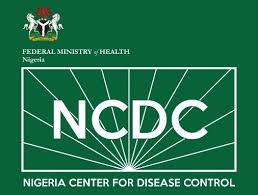By Abujah Racheal
The Nigeria Centre for Disease Control and Prevention (NCDC) has launched a new toolkit to strengthen disease surveillance and forecast outbreaks, aiming to boost early warning systems and epidemic preparedness nationwide.
The NCDC also unveiled a Vulnerability Matrix and Integrated Monitoring and Evaluation Framework, in a move to enhance Nigeria’s ability to detect, prepare for, and respond to infectious disease threats.
Speaking at the launch in Abuja, the Director-General of NCDC, Dr Olajide Idris, described the tools as a significant milestone in the country’s epidemic intelligence architecture.
The News Agency of Nigeria (NAN) reports that the tools were developed by the NCDC in collaboration with Data.FI, a U.S. government-supported project led by Palladium International.
Other stakeholders were the Federal Ministries of Health, Environment, and Agriculture; the Nigeria Meteorological Agency (NiMet); the World Health Organisation (WHO); Resolve to Save Lives; and academia.
Represented by Dr John Oladejo, Director of Special Duties at NCDC, Idris, said Nigeria still faced challenges in accessing timely and integrated information across the human, animal, and environmental health sectors.
“This toolkit is our response to that challenge.
“The effort was catalysed by findings from the 2023 Joint External Evaluation (JEE), which revealed significant gaps in Nigeria’s disease surveillance architecture,” he said.
He said that the toolkit would serve as a cornerstone for building a climate-smart early warning system powered by multi-sectoral data.
“We are moving towards a system that can predict outbreaks before they escalate, saving lives and protecting our economy,” he said.
Mr Otese Ogorry, Country Director of Data.FI Nigeria, said that the initiative was prompted by the JEE’s finding that Nigeria lacked a functional, multi-sectoral early warning system to detect hazards and outbreaks.
“Data.FI partnered with NCDC to find a quick win, which led to the development of this framework,” he said.
Ogorry said that the framework enabled stakeholders to forecast disease outbreaks based on environmental triggers such as rainfall, flooding, and heat waves.
“For example, increased rainfall can predict cholera outbreaks while heatwaves may signal heightened risk for cerebrospinal meningitis.
“The idea is to pre-emptively deploy resources before diseases spread. It is a shift from reactive to proactive public health,” he said.
He said that the framework aligned with Nigeria’s One Health agenda, which integrates data across sectors to manage health risks at the human-animal-environment interface.
“We had the ministries of environment, livestock development, and health in the room.
“The collaboration was tough initially due to differing approaches, but under NCDC’s leadership, we achieved alignment,” he said.
He noted challenges in data-sharing and interagency coordination but said that they were resolved through trust-building and NCDC’s central coordination.
“The tool now rests with the Nigerian government and is designed to be updated periodically,” he said.
He said that the system had already been piloted nationally and further tested in Nasarawa State and the Federal Capital Territory (FCT), adding that feedback from those pilots helped improve its relevance and usability.
He also highlighted the toolkit’s interoperability with Nigeria’s digital disease surveillance platform, the Surveillance Outbreak Response Management and Analysis System (SORMAS), which bolsters the country’s digital health infrastructure.
Also speaking, Dr Samuel Anzaku, Director of Veterinary Public Health and Epidemiology at the Federal Ministry of Livestock and Development, commended the inclusive development process.
“It has been a tough but rewarding journey. From Lagos to workshops, we were there from the beginning.
“This is no longer just a project, it is a government-owned document that can be adapted across sectors to address emerging public health threats, especially zoonotic diseases,” he said.
Anzaku stressed the importance of prediction and preparedness in outbreak response and expressed confidence in the toolkit’s value.
“This framework may not solve all our sectoral challenges, but it offers a structured pathway to manage and mitigate priority diseases and unpredictable public health events,” he said.
Dr Fatima Saleh, Director of Surveillance and Epidemiology at NCDC, emphasised the role of collaboration in public health success.
“Despite constraints, NCDC has sustained progress through the efforts of dedicated institutions and individuals.
“The work we do is not a one-man effort but a demonstration of integrated, multi-sectoral partnerships that strengthen our International Health Regulations (IHR) core capacities and bolster national health security.”
She said that community engagement and inclusivity remained vital to ensuring effective and sustainable interventions.
“When we emphasise inclusivity, our interventions become more relevant, impactful, and enduring,” she said.
NAN recalls that health experts have praised the framework as a model for low- and middle-income countries seeking to enhance pandemic preparedness through data-driven, cross-sectoral approaches. (NAN)(www.nannews.ng)
Edited by Kadiri Abdulrahman












